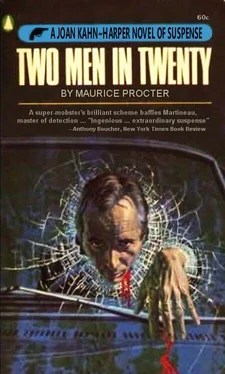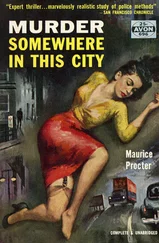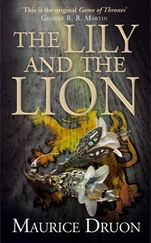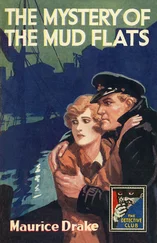Maurice Procter - Two men in twenty
Здесь есть возможность читать онлайн «Maurice Procter - Two men in twenty» весь текст электронной книги совершенно бесплатно (целиком полную версию без сокращений). В некоторых случаях можно слушать аудио, скачать через торрент в формате fb2 и присутствует краткое содержание. Год выпуска: 1963, Издательство: London : Hutchinson, Жанр: Полицейский детектив, на английском языке. Описание произведения, (предисловие) а так же отзывы посетителей доступны на портале библиотеки ЛибКат.
- Название:Two men in twenty
- Автор:
- Издательство:London : Hutchinson
- Жанр:
- Год:1963
- ISBN:нет данных
- Рейтинг книги:4 / 5. Голосов: 1
-
Избранное:Добавить в избранное
- Отзывы:
-
Ваша оценка:
- 80
- 1
- 2
- 3
- 4
- 5
Two men in twenty: краткое содержание, описание и аннотация
Предлагаем к чтению аннотацию, описание, краткое содержание или предисловие (зависит от того, что написал сам автор книги «Two men in twenty»). Если вы не нашли необходимую информацию о книге — напишите в комментариях, мы постараемся отыскать её.
Two men in twenty — читать онлайн бесплатно полную книгу (весь текст) целиком
Ниже представлен текст книги, разбитый по страницам. Система сохранения места последней прочитанной страницы, позволяет с удобством читать онлайн бесплатно книгу «Two men in twenty», без необходимости каждый раз заново искать на чём Вы остановились. Поставьте закладку, и сможете в любой момент перейти на страницу, на которой закончили чтение.
Интервал:
Закладка:
Coggan's glance moved shrewdly from Cain to Flo, and back again. 'She been gone long?' he asked.
Cain knew that France would be listening. 'Since three o'clock,' he admitted. 'She might have gone home to London. She has a temper, you know.'
There was silence while the three newcomers considered the tidings. Cain said: 'It doesn't matter. I shall be going home myself tomorrow. We'll all be going off somewhere.'
'Do we still do the job tonight?'
'You bet we do,' Cain said firmly. 'I'll show 'em. They won't stop me. And I don't let no woman interfere with my plans, neither.'
17
When the meal was eaten France looked at his watch and realized that the firm of Haddon and Walker would soon be closing for the day. 'I'd better go and take a look at the tickle, to be sure we can get in,' he said.
'Want any help?' Cain asked.
France detected the suspicion which the other man was trying hard to conceal. Despite his brave words, Cain was deeply disturbed by Dorrie's flight. Leaders know that desertion is infectious among followers. One act of desertion can cause distrust of those who remain.
'Anybody can come if he wants,' France said carelessly. 'Just to dog out for me.'
Nobody volunteered. Cain said: 'You go, Sailor.'
Jolly made a face. He had eaten well, and he was of an age when a man needs a rest after a meal. 'Is it really necessary?' he asked France.
'Not really,' was the reply. 'Let your tea settle, I'll be all right.'
It was obvious then that nobody else would go with France, and Cain did not even think of going himself. He asked: 'When will you be back?'
'In time to go with Bill to get the van. That all right?'
Cain nodded. France went and changed into his 'hunting suit', which was an ordinary suit with numerous special pockets for the variety of articles which he always took with him when he went to work. He left the house and caught a bus in Churlham Road. This action was noted by the police, and reported to Headquarters. Nobody got excited about it. Just one man going out. For an hour's relaxation, perhaps. Or gone to pick up a vehicle. He would be back.
He reached the vicinity of Haddon and Walker's by half past six. It was a fine evening, with long, strong shadows. The dusty sunlight suited his mood. Tomorrow he would be away, with Dorrie. It was a development for which he had not even dared to hope. He would have stolen her from Cain without a qualm, but he had not been obliged to do that. Dorrie would have left Cain anyway, he was sure of that. He had fortunately been at hand to assist her in the leaving.
He was not at all nervous, but he walked all round the area at a distance of some two hundred yards from his target. It was a rather shabby warehouse district, with fine new buildings here and there for contrast. Haddon and Walker's was at the end of a block occupied by three separate firms, and the block was in a street which ran behind a busier street which could not quite be called a main road. There was no handy enclosed yard. The front door, which was also the office door, was on a corner. The front wall of the building was broken by three great steel-shuttered doors, and he assumed that apart from the office on the corner, the whole of the front was devoted to the serving of three loading bays.
Standing in sunlight, he noticed that there was a street lamp on the corner not more than three yards from the front door. That was unfortunate. Of course it could always be turned off, but the police were wary of that dodge, and an officer familiar with the district would notice the absence of the light even from a distance. Moreover, that office door had a modern mortise lock and a latch lock, and the door fitted so well that there was no room for France to insert his 'loid' and push back the latch. To open it he would have to prise it with a jemmy, leaving marks which would be obvious to any person who passed.
Each of the steel shutters of the loading bays was an XXC job in its own right. France found them immovable, and gave them no further consideration. He looked at his watch. He had taken ten minutes examining four doors, because there were still a few people about, and he had had to choose his moments.
He walked round the back of the place. The street there was narrower, and it was deserted. The ground-floor windows were of semi-opaque glass, and they had strong wire grilles. If no other way of entry were found, one of the grilles could be cut away at the corners and then clipped into place after a pane of glass had been removed. France had neither clips nor heavy wire cutters with him, so he went to look at the back door.
It was just a door, of normal size, and it looked as if it had not been opened in years. Obviously the people who worked at Haddon and Walker's had no use for it, since all goods would enter and leave by the loading bays, and all visitors by the front door. The size of the keyhole indicated a lock of formidable dimensions, and it might be rusty. And no doubt the door would be bolted as well. France shook his head as he looked at it.
He looked around. Still there was nobody in sight. He tried the door, and found that it was firm. He put his shoulder to it, and it yielded a little at the top. In the middle, by the lock, it was immovable. The bottom of the door was immovable too. 'The lock itself, and a bolt at the bottom,' he decided. He stooped to the keyhole, and saw that there was no key in the lock.
From one of his pockets he produced a gadget of his own invention. It consisted of two lengths of strong, flexible copper wire attached to a thin steel ring three-quarters of an inch in diameter. In effect, it was ten feet of wire with a ring in the middle of it.
He put the ring at the foot of the door and measured the length of wire needed to go up to the keyhole, and from the keyhole to the door handle. The wire which remained he wound tightly round the door handle. Then he took the other end of the wire and began to pay it through the keyhole. The steel ring went through easily, assisted by a pencil. When the ring was through, he brought out a piece of stronger wire which was actually one of his picklocks, and bent it into a wide, crude hook. Now, some of the copper wire was touching the floor on the other wide of the door, and he fished under the door for it with his hook. Eventually he caught it, and pulled it out. He pulled it until it was taut, and then he knew that the steel ring was at the bottom of the door on the other side, just below the bolt.
He looked around. Still there was nobody in sight. He set to work. Now, it was work which required the adroitness which comes from practice. He had had the practice, and he had the adroitness. The wire under the bottom of the door he placed below the spot where he estimated that the angled end of the bolt would be. He held it in his left hand, and with his right he held the wire which ran from the door handle to the keyhole. He pulled gently but firmly on this, keeping the whole thing taut, seeking to catch the handle of the bolt. While he did this, working by touch only and staring blankly along the street, a man trudged past the end of the block and did not even glance in his direction.
At last he felt the resistance which told him that the ring had engaged the bolt. He pulled carefully and felt the bolt turn until it was in a position to be withdrawn. Carefully he let the taut wire slip across the palm of his left hand as he moved it to the hinged side of the door, so that he could pull almost horizontally at the bolt. He pulled, without effect. The bar was rusted into place.
He wiped sweat from his face with the sleeve of his coat, and looked around again. He was still unobserved. He abandoned his hold of the wire beside the keyhole, and used both hands at the bottom of the door, being at one side of the door now and using all his weight. The bolt shot back suddenly, as if it had jumped or broken some slight obstruction. He felt it and heard it.
Читать дальшеИнтервал:
Закладка:
Похожие книги на «Two men in twenty»
Представляем Вашему вниманию похожие книги на «Two men in twenty» списком для выбора. Мы отобрали схожую по названию и смыслу литературу в надежде предоставить читателям больше вариантов отыскать новые, интересные, ещё непрочитанные произведения.
Обсуждение, отзывы о книге «Two men in twenty» и просто собственные мнения читателей. Оставьте ваши комментарии, напишите, что Вы думаете о произведении, его смысле или главных героях. Укажите что конкретно понравилось, а что нет, и почему Вы так считаете.












